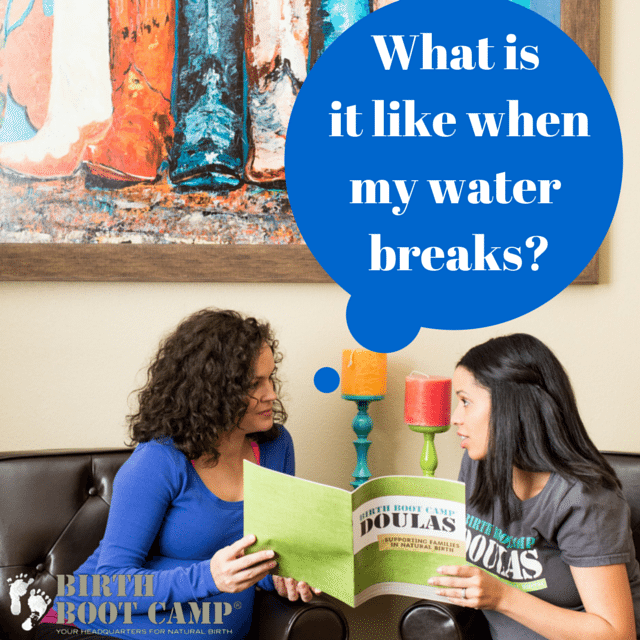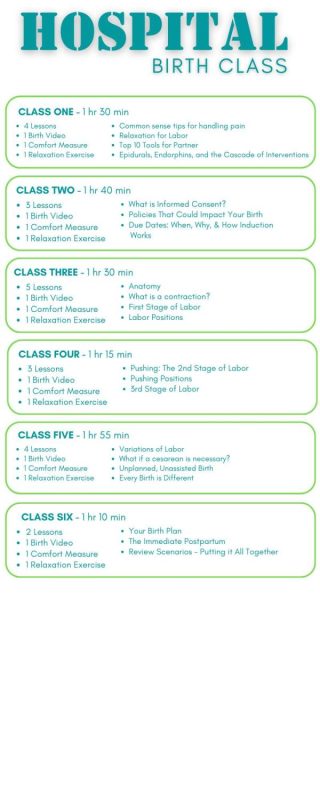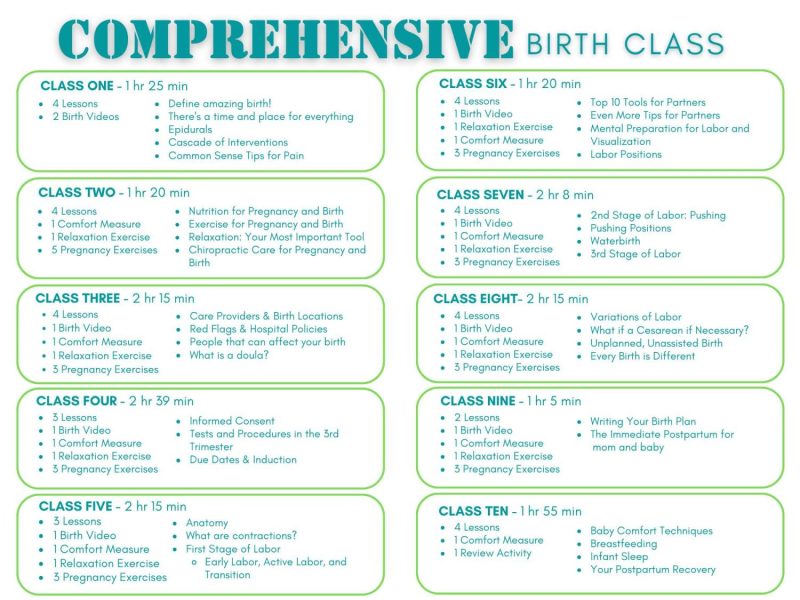What is it like when my water breaks?
If you are pregnant, you have probably started to wonder what it is like when your water breaks. And if you have ever watched television or movie depictions of birth, you may have some very firm ideas about what happens when your water breaks. Maybe it looks something like this:
Your water breaks suddenly and powerfully! Oh no! Just as you enter the freezer aisle at your local Piggly Wiggly, you are startled by a loud Pop! and suddenly your cart is slipping quickly past the frozen fish fillets. Yikes! Clean up on aisle three! Immediately after this explosion of amniotic fluid, labor starts with a vengeance and you can barely make it to the car before a newborn the size of a four month old comes sliding out of your nether regions. Whoa! Labor is scary and FAST!
Well, well, well
The way water breaking is usually portrayed in the media is actually not how it happens for most women in a real life birth. The bag of water that protects your baby as it lives inside you is an incredible thing. It provides cushioning, prevents bacteria from getting to the baby, aids in lung development and it even keeps baby at a constant and comfortable temperature. While we think of the breaking of water as a minor emergency, it is actually a very normal part of labor that has many variations. Now let’s talk a little bit about how things (usually) go when the amazing amniotic sac breaks.
My water will break EVERYWHERE!
We tend think of water breaking with a bang. Suddenly dad is soaked or mom is standing in a telltale puddle. Sometimes the bag DOES burst all over the place with great drama and power. Birth Boot Camp instructor Emily in Minot, North Dakota, said that, “I was kinda pushing and yelled, “The baby’s head!!!” and my midwife came running back into the room. Then, POP! Water explosion. It hit the wall!”
For Jill, a birth teacher in Fargo, North Dakota, people could hear her water break in another room! “I was sitting on the toilet when my water broke. I announced to my birth team in the other room that “My water broke!” to which they replied, “Yeah, we heard!”
A startling gush of fluid is not, however, the only way your water can break. Caryn, one of our instructors in the Dallas/Fort Worth area describes how the experience was different with each of her VBAC (vaginal birth after cesarean) birth experiences. “With my first VBA3C, water really did break in early labor and I had the baby within four hours. With my second VBA3C, I thought water broke but when I got to the hospital, it tested negative (I think it was a high leak) and I was sent home. I had the baby 24 hrs later and water really broke in transition.”
Some women, like Caryn, feel a gush of water but then test negative for amniotic fluid. (If you believe your water has broken, your care provider will often test to see if the fluid is urine or amniotic fluid.) Some will experience a slow leak of amniotic fluid. Rather than a burst, the fluid will trickle intermittently, possibly only when you have contractions. While this can necessitate the need for maxi pads to catch the fluid, the situation isn’t impossible. In fact, some believe that the bag of water can re-seal, just like what seems to have happened with Caryn.
What do you do if your bag of water leaks?
Make sure you know what your care provider recommends in this situation. Some may recommend you come in for a check, and others may just want to be kept in the loop and are happy to have you labor at home for a while. Some may want you to periodically check your temperature. They will often ask you to notice the color of the water. Amniotic fluid should be clear and odorless. They may have you empty your bladder to make sure you aren’t leaking urine rather than fluid. If your water has broken, there may be extra concern if you have tested positive for Group B strep. Your provider’s main concern when water breaks and labor doesn’t start is the risk for infection. so ask them what they recommend. They will discourage you from putting anything in your vagina and may use vaginal exams with caution so to prevent the introduction of bacteria.
When your water breaks and labor doesn’t start, this is called premature rupture of membranes (PROM) and can be a cause of concern. This is particularly concerning for some providers if you are before 37 weeks in your pregnancy. However, labor almost always starts on its own within about 24 hours. And while we think of the amniotic fluid as a one-shot deal, it actually replaces itself constantly so there is no such thing as a dry birth.
Breaking water starts labor, right?
While we think that water breaks and then labor starts, this is another misunderstanding perpetuated by media representations of birth. In truth, often the early part of labor is invisible and involves the cervix dilating and other things happening that go on inside the birthing woman’s body. While this is beautiful and natural, it doesn’t make for very good television, so the media fast forwards to copious amounts of amniotic fluid spillage and screaming women in wheelchairs.
In reality, water can break at any time during labor. In fact, often water breaking is one of the last things that happens. Your water can break during pushing, and sometimes doesn’t break at all! For Julia, a birth teacher in Grapevine, TX, that is how it worked for her. With my first birth, water broke in the birth pool, but at top. A bulging bag of water came out ahead on baby’s head, intact, filled with water.
This phenomenon called being born in the caul is fairly rare, but does occur and makes for some incredible pictures. Being born in the caul is considered by many to be good luck!
What if my water never breaks!?
This is a sincere concern for women. But, as mentioned above, breaking water doesn’t actually have to happen in order for the birth to take place. Artificial rupture of membranes (AROM), is however a commonly done procedure in the induction process. When women are induced to start labor, the bag of water is often broken with an amniohook at around four centimeters dilation. You may want to ask your care provider what their policy is when it comes to breaking water to encourage or speed labor. This matters to you because women are often on a time clock once water has broken and are expected to birth within about 24 hours.
What is it like when water breaks?
So, what IS it like when water breaks? The answer to that question really varies from one woman to the next. Some (but not most) will begin labor with the stereotypical burst in the grocery store. Others may notice an intermittent trickle or leak of their bag of water. Some women will complete most of their labor before water breaks during transition or pushing. Melissa said that, With my unmedicated birth, I distinctly remember having a contraction and feeling like something was in my way. I gave a little push at the peak of it, and broke my water myself. I wasn’t numb, so I literally could feel my bag of waters getting in baby’s way! A rare few may even deliver their baby in the caul. Whatever happens to you, it is probably normal to some degree. After all, there are many variations in the timetable of labor and birth and each woman experiences them a little differently. Your birth class will prepare you for whatever happens.
Check out our founder, Donna Ryan, talking about what it is like when your water breaks.









[…] There is a wide variation of normal regarding your water breaking. Sometimes it does happen in a big way (a great story for later), it may break before contractions […]